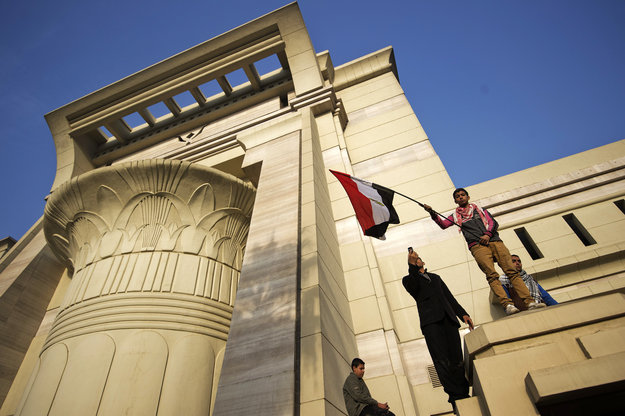It is said that mutual trust, rather than mutual interest, is what keeps human associations together. Lack of trust among members of a community resembles cracks in an aged building; they reveal its vulnerability and forecast its collapse. Civil wars, for example, do not erupt suddenly. They are preceded by extended periods of animosity, taking the form of inflammatory speeches, instigation of acts of violence and low-profile clashes.
Wars between different states have also been mostly associated with mutual distrust and suspicion. In fact, history books are replete of examples of wars being waged just to preempt supposed attacks of opponents. In many instances too, conflicts are perpetuated by feelings of skepticism and doubt. In protracted hostile relationships, self-images and images of the other exemplify what theorists dubbed: mirror images . The term means that each party maintains an image that is entirely opposite that of the other; each party holds a positive self-image and a negative – often diabolical – image of the enemy. In the Middle East, the Arab-Israeli conflict is a good case in point. A taste of such an atmosphere could be seen in Egypt today. It is beyond debate that Egypt s society has, for millennia, been blessed with its distinct homogeneity, hence devoid of the type of inter-ethnic and religious rivalries that continue to tear many Middle Eastern societies apart, such as Iraq, Lebanon, and the Sudan. Still, for decades now, a dreadful infection has continued to creep through, and mess with, the solid fabric of the Egyptian society. Today, the feeling that social peace is missing is widespread, and evidence of that is manifested in many realms.
In politics, the relationship between the rulers and the ruled is marred by profound misgivings. For the most part, Egypt s rulers perceive their people as both ungrateful and dangerous. To them, the masses ought to be closely monitored since disloyalty is deeply ingrained in their souls. Inattentiveness to this threat is tantamount to political suicide, for Egyptians are trouble-makers and only understand the law of the stick . In other words, leniency is believed to be lethal for statesmen.
On the other hand, laymen traditionally believe in the misconduct and corruption of their politicians. A global survey conducted by the Pew Research Center last July showed the great discontent of Egyptians with the performance of their government. Among 47 countries surveyed, Egyptians ranked last, with only 13% satisfied about their national government.
In the meantime, many Egyptians think that their rulers are, innately, dishonorable and deceptive. What they say is not to be taken seriously, for it contains loads of lies and illusions. Likewise, the deeds of rulers are primarily undertaken to serve their own parochial interests, not that of the populace at large. The ubiquity of conspiracy theory when it comes to interpreting governmental decisions is, certainly, born out of this deep-rooted mistrust.
A no smaller gap is clearly evident on the social level, where, since the seventies, the Egyptian society has increasingly been divided into two major blocs: the rich and the poor. The middle class – victim of various socioeconomic developments – has nearly disappeared along the way.
Both groups are significantly distrustful over the other. The well-offs are deeply apprehensive of the intentions of the underprivileged segments of society. They suspect that the poor harbor feelings of jealousy and covetousness. Therefore, interaction may be unsafe and has to be avoided as much as possible. That the wealthy maintain their social isolation in their secluded – and fortified – residences, detached resorts and pricey outlets is partially a product of their anxiety of, and disinterest in, mingling with the social other .
In contrast, the underprivileged who struggle with the hardships of life from sunrise to sunset blame much of their misfortune on the wealthy. In their understanding, the rich are decadent and corrupt, morally and financially. Also, they are, at best, insensitive to the suffering of the poor; at worst, they are the cause of it.
Many other indicators show that social peace has gone astray. Aggressive driving, frequent street-quarreling and the rise in intolerance reflect the intrinsic tendency to view the relationship with the other as a zero-sum game. As a result, the sense of belonging to the community of citizens has declined, and substituted by self-centeredness and selfishness. Since the society is believed to be a jungle, being a beast, quite naturally, is seen as the prime key to survival. People reason that neither the hostile society nor the defunct law will help them; survival is only for the fittest . In other words, self-reliance is believed to be crucial to triumph in the struggle against the enemies next door. The means of the battle are power, capital and, certainly, affiliation with those who have both.
The talk about citizenship remains hollow amidst such a bleak social setting, for societies live in torment without trust and confidence. If unaddressed, these social tensions will shatter any plans Egypt may have to develop the economy or encourage political participation.
Nael M. Shamais a PhD Candidate at the School of International Relations, University of St. Andrews, UK. This commentary is published with his permission.



